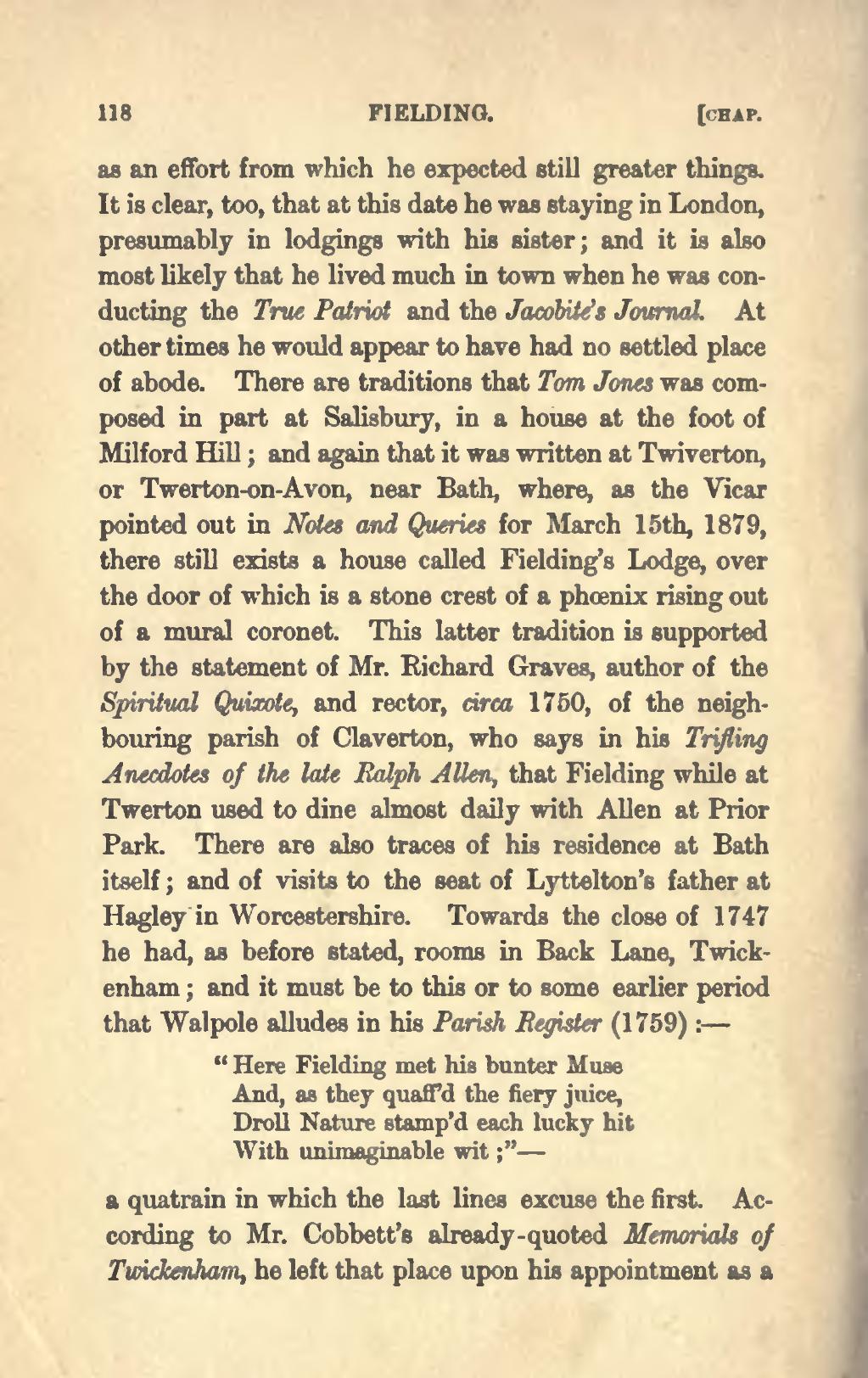as an effort from which he expected still greater things. It is clear, too, that at this date he was staying in London, presumably in lodgings with his sister; and it is also most likely that he lived much in town when he was conducting the True Patriot and the Jacobite’s Journal. At other times he would appear to have had no settled place of abode. There are traditions that Tom Jones was composed in part at Salisbury, in a house at the foot of Milford Hill; and again that it was written at Twiverton, or Twerton-on-Avon, near Bath, where, as the Vicar pointed out in Notes and Queries for March 15th, 1879, there still exists a house called Fielding’s Lodge, over the door of which is a stone crest of a phoenix rising out of a mural coronet. This latter tradition is supported by the statement of Mr. Richard Graves, author of the Spiritual Quixote, and rector, circa 1750, of the neighbouring parish of Claverton, who says in his Trifling Anecdotes of the late Ralph Allen, that Fielding while at Twerton used to dine almost daily with Allen at Prior Park. There are also traces of his residence at Bath itself; and of visits to the seat of Lyttelton’s father at Hagley in Worcestershire. Towards the close of 1747 he had, as before stated, rooms in Back Lane, Twickenham; and it must be to this or to some earlier period that Walpole alludes in his Parish Register (1759):—
“Here Fielding met his bunter Muse And, as they quaff’d the fiery juice, Droll Nature stamp’d each lucky hit With unimaginable wit;”—
a quatrain in which the last lines excuse the first. According to Mr. Cobbett’s already-quoted Memorials of Twickenham, he left that place upon his appointment as a
